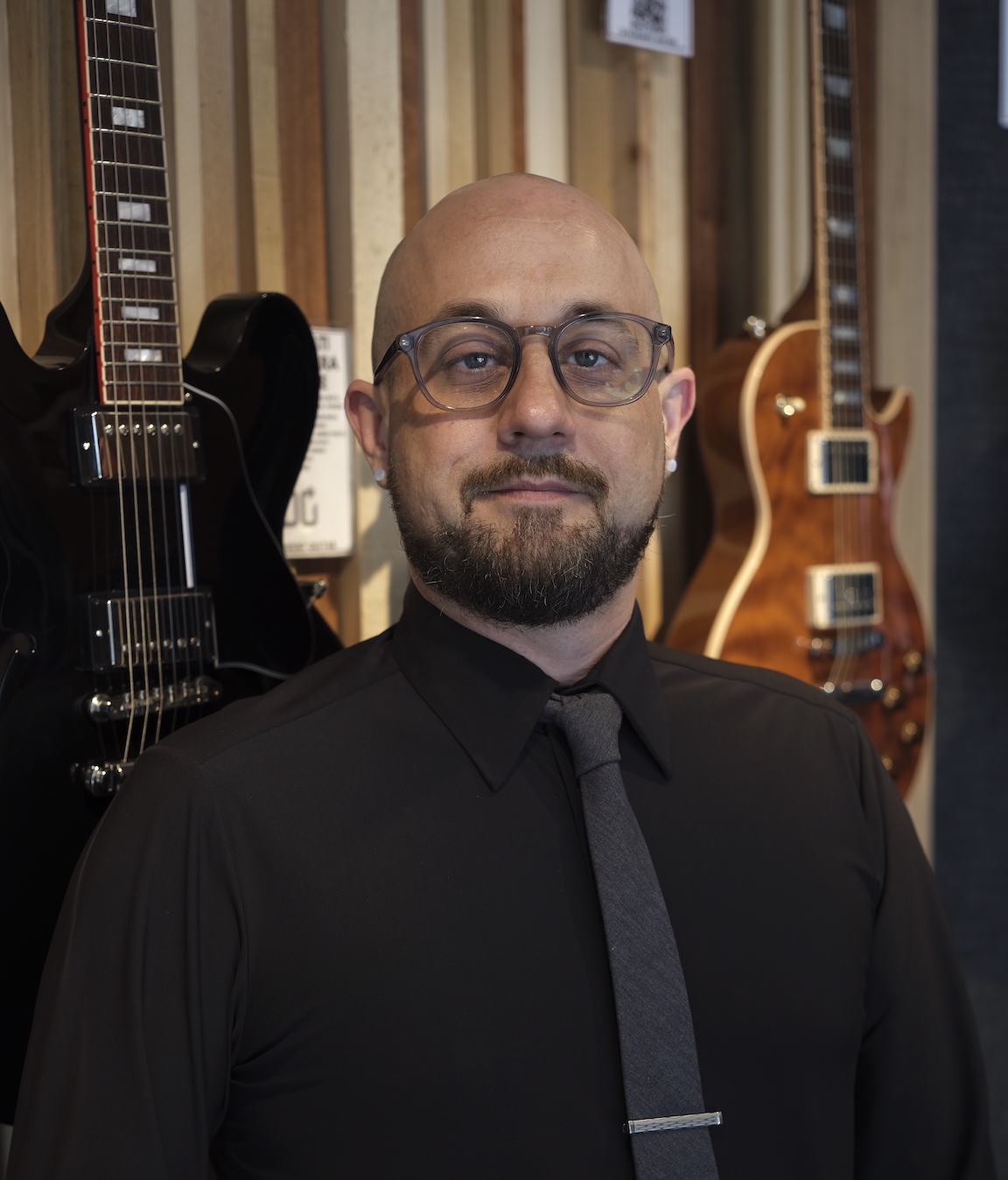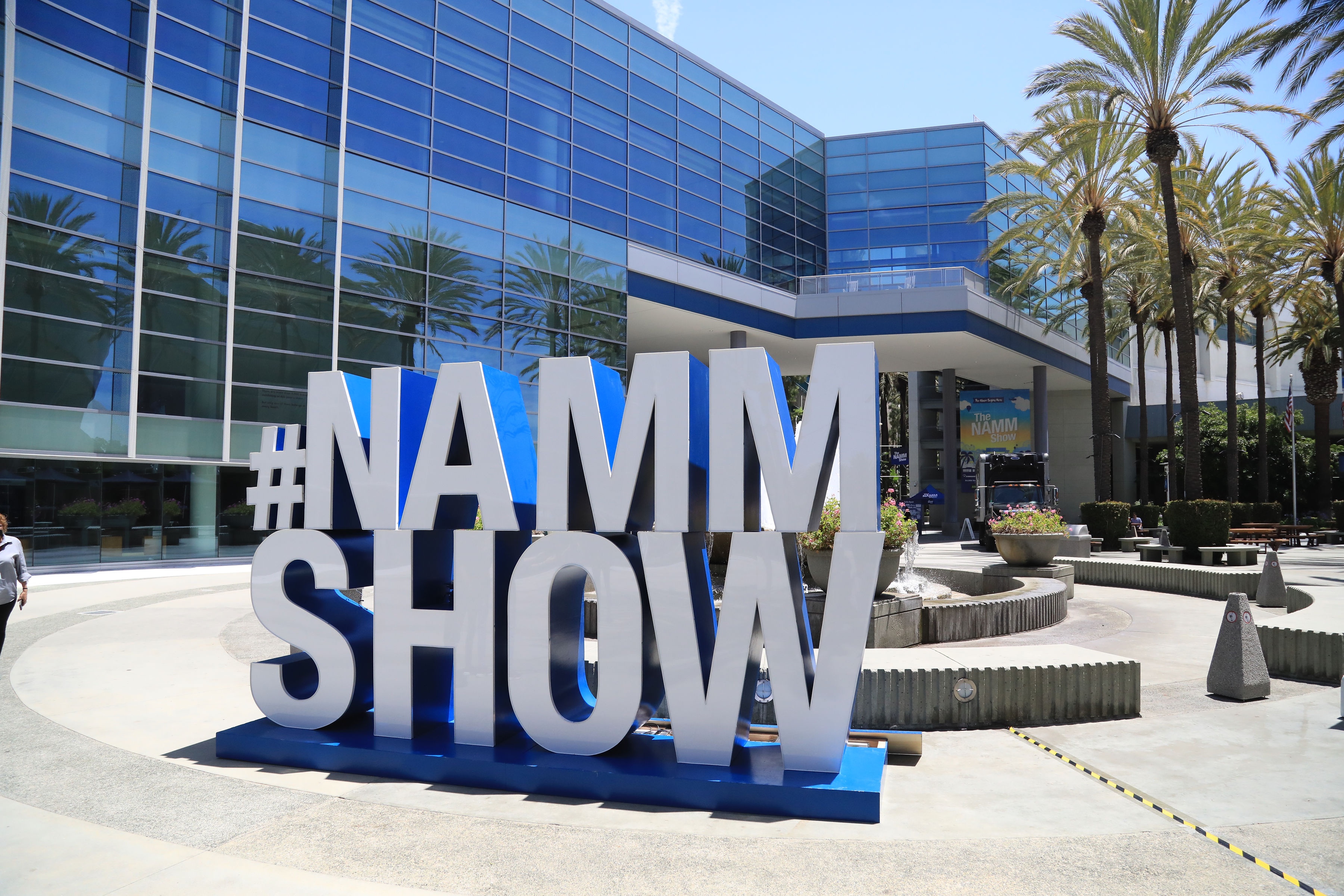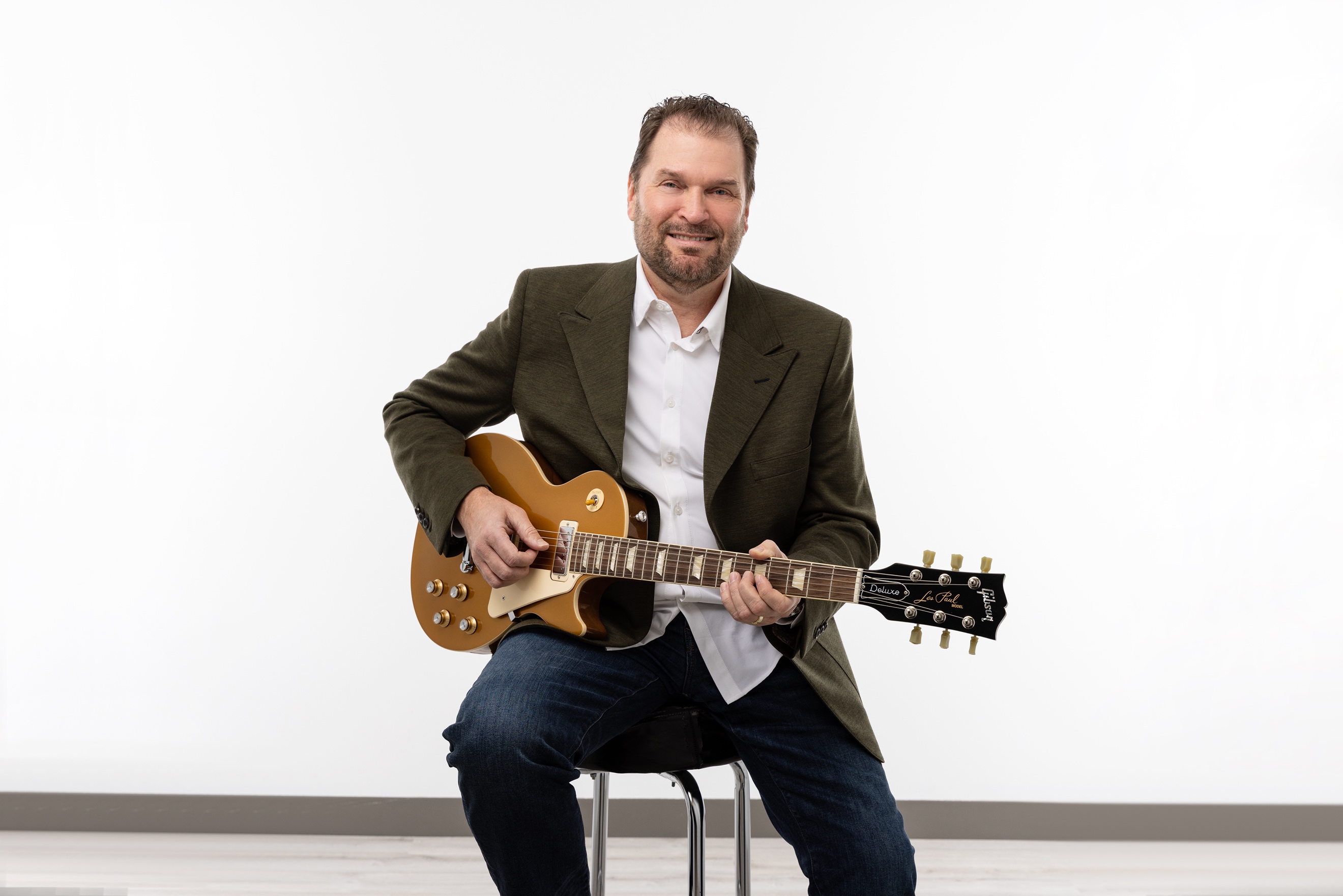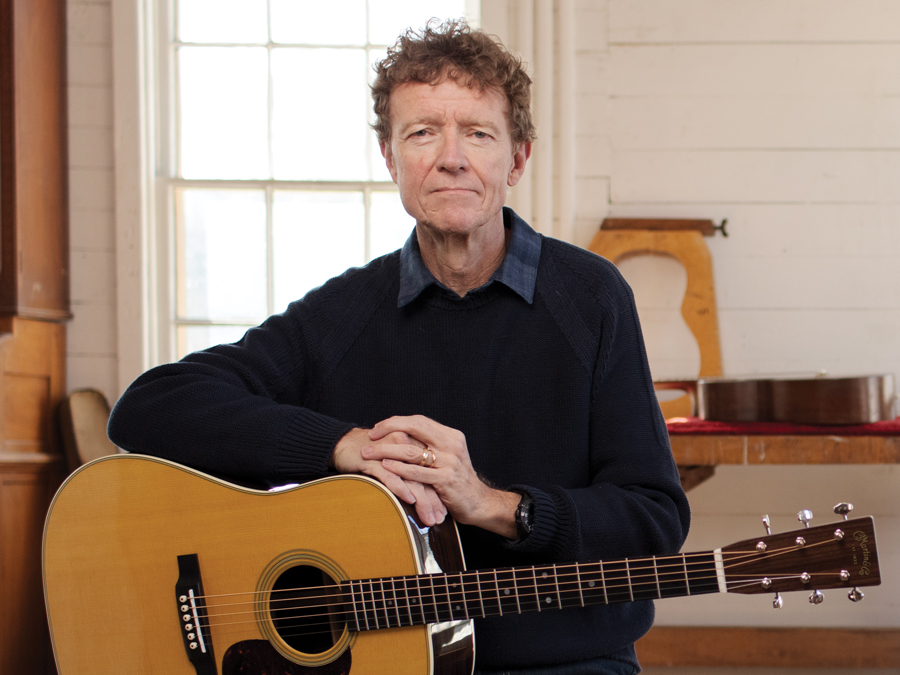
Chris Martin, chairman and CEO of Martin Guitars, and new chairman of NAMM
December 11, 2019 I Cover Story
Beating Headwinds
The Music Inc. Interview with Chris Martin, chairman and CEO of Martin Guitars, and new chairman of NAMM.
By Frank Alkyer
photo by Zachary Hartzell
When the topic of legacy brands arises in the musical products industry, few have a history as storied as C.F. Martin & Co. of Nazareth, Pennsylvania. Crafting some of the most iconic acoustic guitars ever built, the company, founded in 1833, has survived wars, recessions, depressions and changing tastes to thrive on three decades of strong growth for the acoustic guitar market.
C.F. Martin IV, better known as Chris to friends and industry associates, is the sixth generation to lead his family’s business. He was named chairman and CEO of the company in 1986 after his grandfather, C.F. Martin III, passed away. He was 31 years old, and took over during a time when digital keyboards were exploding and acoustic guitar sales were plummeting.
“It wasn’t one of those little blips,” Martin said. “It was a dramatic, fall-off-a-cliff situation.”
But the market, and Martin Guitars, rebounded, fueled by new generations seeking out the sound and feel of an acoustic instrument. Martin sales exploded. In 1990, after 133 years, Martin produced its 500,000th guitar. In 2004, 14 years later, Martin’s 1 millionth guitar was produced. And in 2017, just 13 years later, its 2 millionth guitar was strummed.
Last summer, in addition to his responsibilities with the company, Martin was appointed to a two-year term as NAMM chairman. He is only the third manufacturer to serve the industry in this role. In October, Frank Alkyer, Music Inc.’s publisher, sat down with Martin to discuss the current state of the acoustic marketplace, what’s working for retailers and what he sees on the horizon. The following is an edited transcript of that discussion.
Frank Alkyer: From your viewpoint, what’s the state of the acoustic guitar market right now?
Chris Martin: Good. I was at Music China and the coolest thing for me was to stand by the Martin display at the Acton booth [Martin’s distributor in China]. And the consumers there are younger. These young, mostly men, come up to me and they’re like, “Mr. Martin.” And I’m like, “Yes?” “Can I have my picture [taken] with you?” OK. And they’re like, “I saw you on YouTube.” And, they can play.
It wasn’t that long ago that the Chinese market wondered how Western guitar would fit into their culture. And now the younger players are like, “Oh, yeah.”
Alkyer: So, that’s an opportunity. Is that one of the things that’s driving your business?
Martin: We have a goal to increase our exports. We’ve always exported. We’ve bounced around 40 to 45%, and we set a goal, let’s go to 50%. Now, one way to get there is to cut back on domestic sales. That’s not the answer. [Laughs.]
But there’s stuff going on internationally that’s going to impact that. There are some headwinds for our kind of product. You look at Brexit. Our British distributor was supposed to come over and they said, “You know, things are so dicey right now and everybody, all of our customers need us here to hold their hands while we get through this.”
You read about Germany, that things are leveling off there. I talked to Henry Lee [managing director of Acton and the legendary Tom Lee Music retail chain] about Hong Kong, and he put it in historical perspective. He was able to rattle off, just from memory, all of these times when Hong Kong has gone through something. I’m like, “You know better than I.” But he said this thing could last a year.

Alkyer: So, the protests are really affecting business in Hong Kong.
Martin: Yes, absolutely. And he said, “The only businesses that are growing right now in Hong Kong are the grocery stores because nobody’s going out to eat.”
Alkyer: There seems to be a bit of doom and gloom, at any time, someplace in the world. Overall, looking forward to the next year, what are you expecting?
Martin: Three years ago, we found in the run-up to the election that the domestic market, for us, was challenged. And, what I took away from it is that there was so much concern about who was going to be president that people just throttled back discretionary purchases. It’s like, “Until the dust settles, do I want to extend myself and go out and buy this $3,000 guitar that I probably don’t really need?”
But then it recovered. Domestically, and in Canada, the business is really good. We’re planning for growth, but I am concerned that there could be some headwinds domestically next year.
Alkyer: I met you in 1990 at a NAMM show, and I asked some very naive questions. One of them was, “What’s the acoustic guitar market like?” And you explained to me that it’s very cyclical. But it’s a cycle that flowed upward in pretty dramatic fashion for the last three decades.
Martin: Yep.
Alkyer: That’s not something you would have predicted in 1990.
Martin: No.
Alkyer: How did that happen?
Martin: The market caused it. I don’t think any of us in the business did, other than… I think there’s something to be said for if you go to buy a guitar today, if it isn’t good, it shouldn’t even be on the shelf. Years ago, distributors could get away with poor quality. So, maybe the fact that the customers are getting good guitars and that has inspired them to go, “Yeah, this does what I want it to do.”
And the ukulele, I think that ukulele is fueling some of this, too. The other thing is that crazy thing that guitar players do where they absolutely think they need more than one guitar, or more than two, or more than… [Laughs.]
There is a bit of an aging out there, though, too. If you talk to George Gruhn [owner of Gruhn Guitars], he will say that some older customers now are coming in [to the store]—often at the impetus of the spouse who says, “Honey, it’s time. What am I going to do with 67 guitars if you’re not here?”
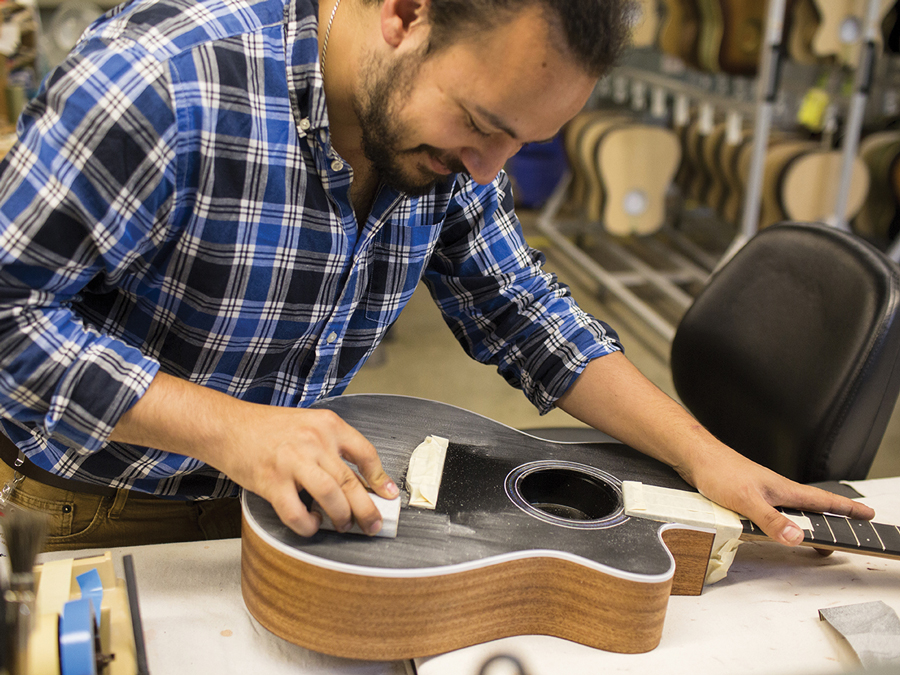
Alkyer: But, for right now, you look at the state of the acoustic guitar market as being good?
Martin: Good. Yes. But, looking ahead, maybe seeing headwinds.
We have a brand that you can rely on, but you get down in the lower price points, the competition’s tough. It’s tough because the guitars are all good. You can’t say mine’s 10 times better than yours. I’m going to say mine’s better than yours, but it’s incrementally better.
Alkyer: What projects are you working on right now that have you really excited.
Martin: We have a new model for The NAMM Show. That’s all I can say about that. [Laughs.]
Alkyer: Top secret! What are you hearing from your retailers today?
Martin: I hear from the ones that have both feet in. In the first quarter of next year, I will get a letter or two from someone who is very disappointed that they cannot move forward as a Martin partner. The ones that are both feet in will be with us next year. But there are situations where stores are struggling. And we try as best we can to help them. But it’s really up to them, and when you see how the stores that are surviving and prospering are doing it, there are road maps. You need to go to The NAMM Show. You need to go to some of the sessions to get excited. You need to go through the process of submitting your store to see if you could be one of the Top 100. Those are the people that are in 100%. We still have some customers that don’t have a website. And it’s like, “OK, as long as you can do it without, and still do what’s required. But we really kind of think you should have a website.” [Laughs.]
Alkyer: With retailers I speak to, one of their great concerns is the possibility of manufacturers selling direct. What is your position on that?
Martin: Pre-internet, we could not make up the difference if we went out and said, “OK, we’re going to compete directly with our retail partners.” It wouldn’t have worked. So, it’s been a bit of, you know, let’s walk gingerly. One of the things we started to do is let you buy a guitar in a store and pick it up here—factory delivery. And from that, and I pushed for this, I said, all right, that’s working. We’re helping our dealers. We’re not getting compensated for it. But we do get people who come and visit and ask, “Can I buy a guitar here?” And I said, you know, maybe it’s time to offer that because that’s pretty cool, right?
So, what we do now, and this has evolved, is ask, “Do you have a Martin dealer that you work with?” If yes, OK. That dealer is going to get a credit for this purchase. If it’s, “I don’t know.” Hmm. Then we will make the sale. If the local retailer hasn’t found a way to reach out to that person, then we do not give anyone a credit.
Alkyer: The guys who, as you say, have both feet in, what are they doing right?
Martin: From my perspective, they’re, unless you’re like Cosmo Music [in Toronto], they’re focused on, “I can’t be everything. So let me be really good at some things.” Of course, you should have a wall full of Martins if you have a store in Tennessee. Shame on you if you don’t.[Laughs.] Today, they’re popular, these guitar walls. If you go down in the lobby, you’ll see our wall. When the dealer says, “All right. I’ll give you that wall.” We’ll go in and we’ll put the display up. And those seem to be working. In the old way, it was like, well there’s a Martin. There’s a Yamaha. There’s a Taylor. There’s a Takamine. Which is which is which is which? Now it’s like there’s the Martin wall. There’s the Taylor wall. OK, now I can just go there or go there.
Alkyer: Going through the executive committee to become the NAMM chair. What was your rationale? Why didn’t you want to do this? It’s a big commitment.
Martin: I wasn’t even really aware. There are people [who] are very aware of The NAMM Board and of the Executive Committee. They’re ambitious regarding those things. I was on The NAMM Board, which I did appreciate, but I was kind of oblivious as to how this Ex Com thing worked. Dennis Houlihan [former president of Roland Corp U.S.] would talk about, “Hey Chris, I was the first commercial member on Ex Com.” I’m like, that’s cool. It was like thank God those of us that are paying the rent get a seat at the table because, if you remember, forever and ever and ever, it was retailer, retailer, retailer. It’s like, wait a minute. Can’t we be partners here? So, now we alternate.
Alkyer: You still have an appreciation for the trade show. I can see it. In this day and age of people saying, “What’s working? What’s not working?” The NAMM Show still works for you?
Martin: Sure. It energizes everyone [who] goes. You can just tell. And the timing’s pretty good. Hopefully you came off a good Christmas, if you’re in retail. You got some money in your pocket. It might be snowing where you are. “Hey, I get to go to California for a couple of days. It’s going to be sunny. See people I haven’t seen for a year. See stuff I didn’t know existed.” And just be infused with this collective enthusiasm we have for making music.
Alkyer: Last question. What’s next for Martin?
Martin: I think 2020 is going to be a year of being nimble. I will admit during the last election, we didn’t pay attention. I think a lot of times in our industry that kind of stuff hits us a little later than everybody else. And so, because it hits slowly, I will say we built up too much inventory. So, I learned a good lesson. If it looks like it’s slowing down, it probably is.
Stop hiring. We can benefit from attrition, and we can go off overtime. There are levers we can pull before we ever get our backs against the wall. I don’t think it’s going to be that bad because someone will get elected president and the world will go on. But I think next year is going to be challenging for those of us that don’t make commodities. We’re not making something that you need. You need shelter. You need food. You don’t really need a guitar. Just be nimble next year. If you see opportunities, seize them. And if you are challenged, pay attention so you don’t get so jammed up. MI






